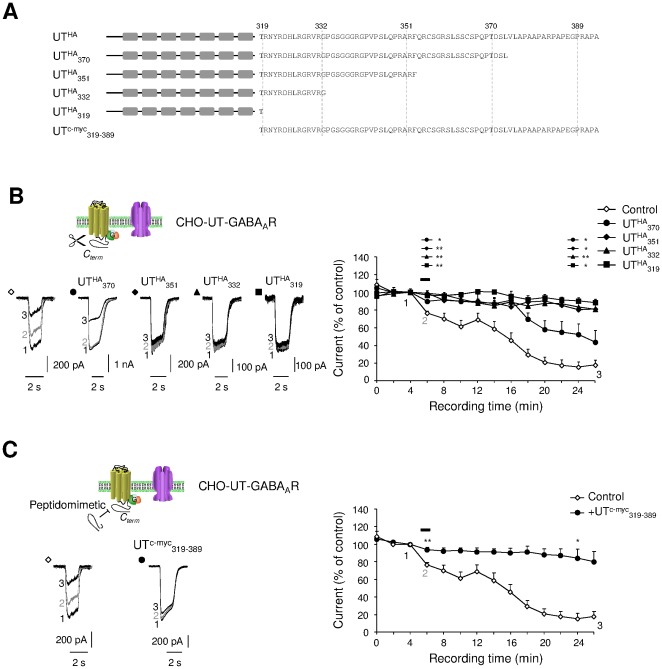Figure 8. Receptor sequences involved in UT regulation of the GABAAR activity.
(A) Schematic diagrams mixed with sequence alignments of the HA epitope-tagged human UT, C-terminus truncated UTHA 370, UTHA 351, UTHA 332, UTHA 319 mutants, and peptidomimetics corresponding to the entire C-terminus cytosolic fragment of UT (UTc-myc 319–389). (B and C) Traces of Iso (10–4 M, 2 s)-evoked current before (1), during (2) a 1-min hUII (10−8 M) application and after 22-min washout (3). (B) Currents recorded from CHO coexpressing GABAAR and UTHA (Control), UTHA 370, UTHA 351, UTHA 332 or UTHA 319. Corresponding average time course of the current, in the absence or presence of UT truncated mutants. (C) Current traces recorded from CHO-UT-GABAAR, in the absence or presence of UTc-myc 319–389. Corresponding average time course of the Iso-evoked current, in the absence or presence of UTc-myc 319–389. In B, significance was only annotated above the time course graph during hUII perfusion and after 18-min washout, for clarity. Data are mean ± SEM from 3 to 13 cells. ns, non significant; *, P<0.05; ** P<0.01 compared with the corresponding control Iso-evoked current.

